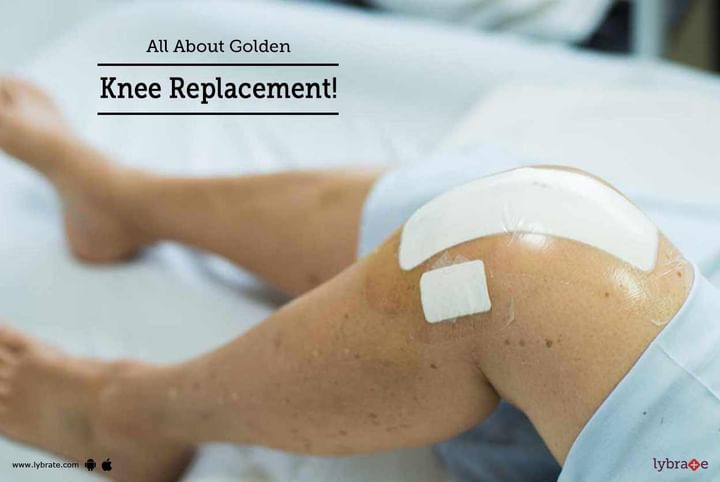All About Golden Knee Replacement!
Artificial replacement parts are made of strong plastic, metal, or ceramic. All knee replacements, partial or total, will have parts made of a few different materials (likely metals and plastic). In most cases, each component is built from titanium, cobalt-chromium alloys, or a titanium and cobalt mixed metal. The chosen materials must be durable, allow for some flexibility with movement and be biocompatible (meaning it will not be rejected, corrode nor react with the body).
1. Cobalt-Chromium Alloys— Chromium alloys are one of the most commonly used materials in implant components. For those with nickel allergies, some particles from this metal can get into the bloodstream and cause a reaction.
2. Titanium and Titanium Cobalt—Titanium cobalt is used as frequently as cobalt-chromium alloys in joint replacement components. Since this metal is softer, it tends to make up the tibial part of the replacement where the plastic inserts lock-in. In the tibial component, the metal choice is less important since there is little traction or rubbing during movement.
3. Polyethylene— This is a type of strong plastic found in the tibial patellar (kneecap) component and the plastic spacer. The plastic components allow the metal pieces to glide smoothly throughout the movement. This material is metal-free.
Those with Nickel Allergies-
If you have a history of skin reactions to metal jewelry or are unsure if you may be allergic, it might be worth getting formally tested by an allergist. In general, the femoral component is the only artificial component that those with a nickel allergy need to be conscious of when selecting a material and manufacturer. Majority of the femoral parts are made from cobalt-chromium since it is a very tough metal. The tibial component (the other component made of metal) is usually made of softer, titanium alloy, which has very low (almost untraceable) amounts of nickel.
The golden knee replacement surgery is a blessing for the people who have a metal allergy. These knee implants have enhanced surface coating of Titanium Niobium Nitride (TiNiN). This coating gives the implant a golden colored look (hence named golden knee) and improves the longevity and performance of knee replacement surgery. This coating also makes the implant allergy-proof.
The gold knee is one of the best implants available today and the most successful too. It not only increases the life of the implant but also prevents any allergic reactions in the patient. Regular knee implants made of chromium cobalt alloy tend to release metal ions in the body. In patients who have a metal allergy, these metal ions can cause inflammation in the knee area and eventually cause complications like infection, loosening, and persistent knee pain. Golden Knee implants do not induce allergic reaction with human tissue. Its wear and tear are very low. Hence a Golden Knee replacement surgery is generally suggested for such patients. Due to its improved longevity of up to 40 years, this implant is preferred for knee replacements in patients younger than 60 years.
However, any patient can undergo Golden knee Replacement surgery but it is preferably advisable for patients who have a metal allergy and Patients younger than 60 years.
Benefits of Golden Knee Replacement-
-
Allergy-proof
-
Improved longevity of up to 40 years
-
Improved durability of the implant
-
Better Biocompatibility
-
Better surgical results



+1.svg)
